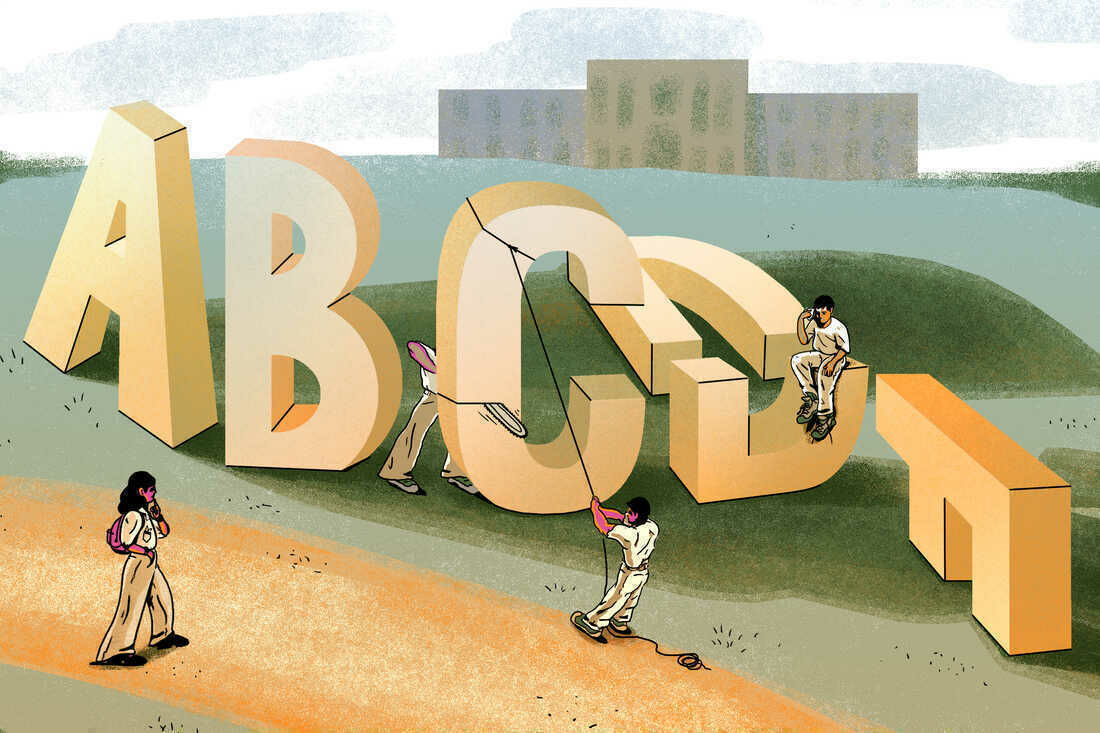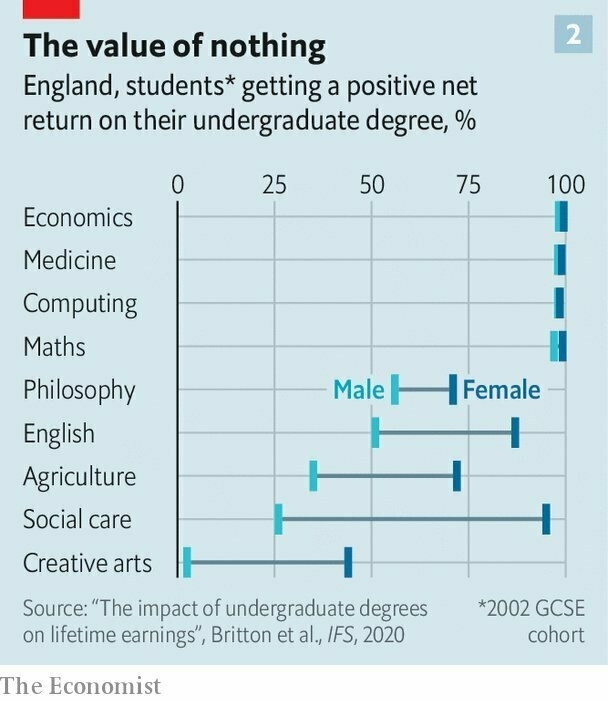- The rhetoric around Open Badges in the early days was that it would mean the end of universities. Instead, they have co-opted them as 'microcredentials' in a way that unbundles chunky degrees into bitesize pieces. Universities are now more likely to work with employers on these microcredentials, which is a benefit to employability, at the expense of a rounded 'liberal' education.
- My first degree was in Philosophy, which most people would assume makes you entirely unemployable. The reverse is actually true, especially for knowledge work. I should imagine that in a world where we need, for example, more AI ethicists, this trend will only continue.
University is about more than jobs and earning power
Next month, I embark on my fourth postgraduate qualification: an MSc in Systems Thinking in Practice. I also believe that alternative credentials such as Open Badges are valuable. That’s because the answer to an ‘either/or’ question is usually ‘yes/and’.
So I have sympathy with this article which talks about potentially going too far in discouraging people from going to university. What’s missing from this piece, as usual with these things, is that Higher Education isn’t just about earning power. It’s about expanding your mind, worldview, and experiences.
I got involved with Open Badges 12 years ago because I wanted my kids to have the option of going to university, rather than it being table-stakes for a decent job. We’re not quite there yet, but we’re a lot closer than we used to be. It’s a delicate balance, because I don’t want a liberal education to be the preserve of a wealthy elite.

Wages grow faster for more-educated workers because college is a gateway to professional occupations, such as business and engineering, in which workers learn new skills, get promoted, and gain managerial experience. Most noncollege workers, in contrast, end up in personal services and blue-collar occupations, for which wages tend to stagnate over time.Source: The College Backlash Is Going Too Far | The Atlantic[…]
Despite the bad vibes around higher education, the fastest-growing occupations that do not require a college degree are mostly low-wage service jobs that offer little opportunity for advancement. Negative public sentiment might dissuade some people from going to college when it is in their long-run interest to do so. The potential harm is greatest for low- and middle-income students, for whom college costs are most salient. Wealthy families will continue to send their kids to four-year colleges, footing the bill and setting their children up for long-term success.
Indeed, highly educated elites in journalism, business, and academia are among those most likely to question the value of a four-year degree, even if their life choices don’t reflect that skepticism. In a recent New America poll, only 38 percent of respondents with household incomes greater than $100,000 said a bachelor’s degree was necessary for adults in the U.S to be financially secure. When asked about their own family members, however, that number jumped to 58 percent.
Image: Good Free Photos
Ungrading the university experience
There’s some discussion of students ‘gaming the system’ in this article about ungrading university courses, but nothing much about AI tools like ChatGPT. This movement has been gathering pace for years, and I think that we’re at a tipping point.
Hopefully, this will lead to more Open Recognition practices rather than just breaking down chunky credentials into microcredentials.
[A]dvocates say the most important reason to adopt un-grading is that students have become so preoccupied with grades, they aren't actually learning.Source: Some colleges are eliminating freshman grades by ‘ungrading’ | NPR“Grades are not a representation of student learning, as hard as it is for us to break the mindset that if the student got an A it means they learned,” said Jody Greene, special adviser to the provost for educational equity and academic success at UCSC, where several faculty are experimenting with various forms of un-grading.
If a student already knew the material before taking the class and got that A, “they didn’t learn anything,” said Greene. And “if the student came in and struggled to get a C-plus, they may have learned a lot.”
[…]
[S]everal colleges and universities… already practice unconventional forms of grading. At Reed College in Oregon, students aren’t shown their grades so that they can “focus on learning, not on grades,” the college says. Students at New College of Florida complete contracts establishing their goals, then get written evaluations about how they’re doing. And students at Brown University in Rhode Island have a choice among written evaluations that only they see, results of “satisfactory” or “no credit,” and letter grades — A, B or C, but no D or F.
MIT has what it calls “ramp-up grading” for first-year students. In their first semesters, they get only a “pass,” without a letter; if they don’t pass, no grade is recorded at all. In their second semesters, they get letter grades, but grades of D and F are not recorded on their transcripts.
The 'value' of a degree
I’ve got two things to say about this article in The Economist. One is to do with alternative credentialing, and the other is to do with my first degree.
Source: Was your degree really worth it? | The EconomistIn England 25% of male graduates and 15% of female ones will take home less money over their careers than peers who do not get a degree, according to the Institute for Fiscal Studies (IFS), a research outfit. America has less comprehensive data but has begun publishing the share of students at thousands of institutions who do not manage to earn more than the average high-school graduate early on. Six years after enrolment, 27% of students at a typical four-year university fail to do so, calculate researchers at Georgetown University in Washington, dc. In the long tail, comprising the worst 30% of America’s two- and four-year institutions, more than half of people who enroll lag this benchmark.
[…]
Earnings data in Britain call into question the assumption that bright youngsters will necessarily benefit from being pushed towards very selective institutions, says Jack Britton of the ifs. In order to beat fierce competition for places, some youngsters apply for whatever subject seems easiest, even if it is not one that usually brings a high return. Parents fixated on getting their offspring into Oxford or Cambridge, regardless of subject, should take note. But there is also evidence that tackling a high-earning course for the sake of it can backfire. Norwegian research finds that students whose true desire is to study humanities, but who end up studying science, earn less after ten years than they probably otherwise would have.




